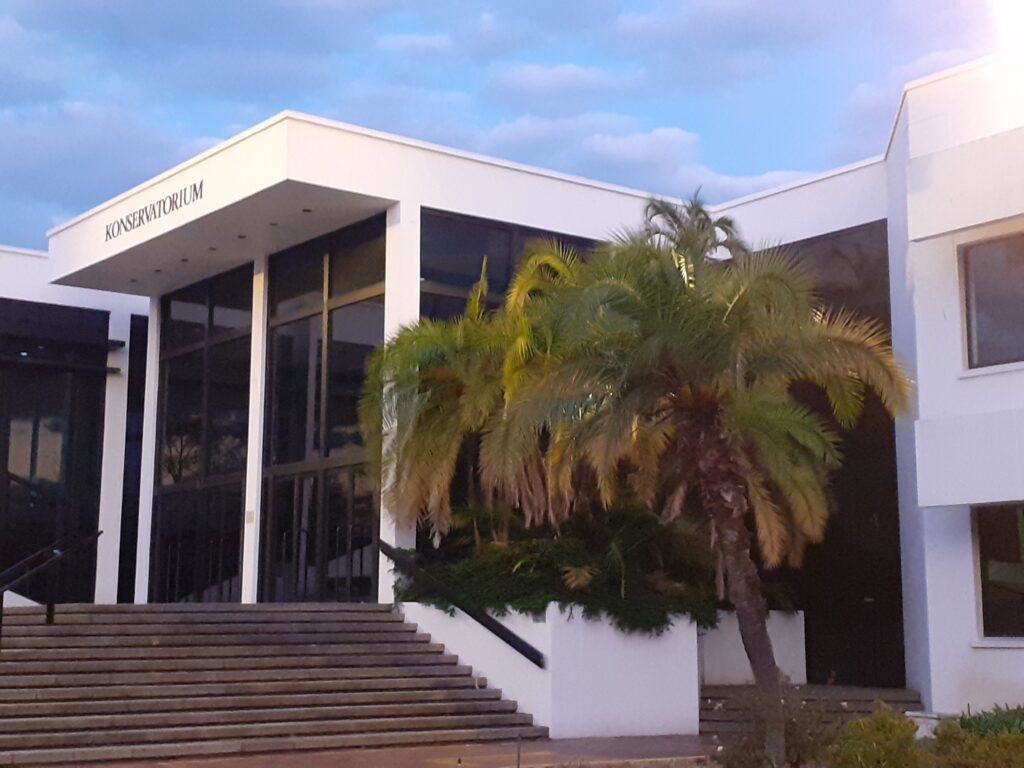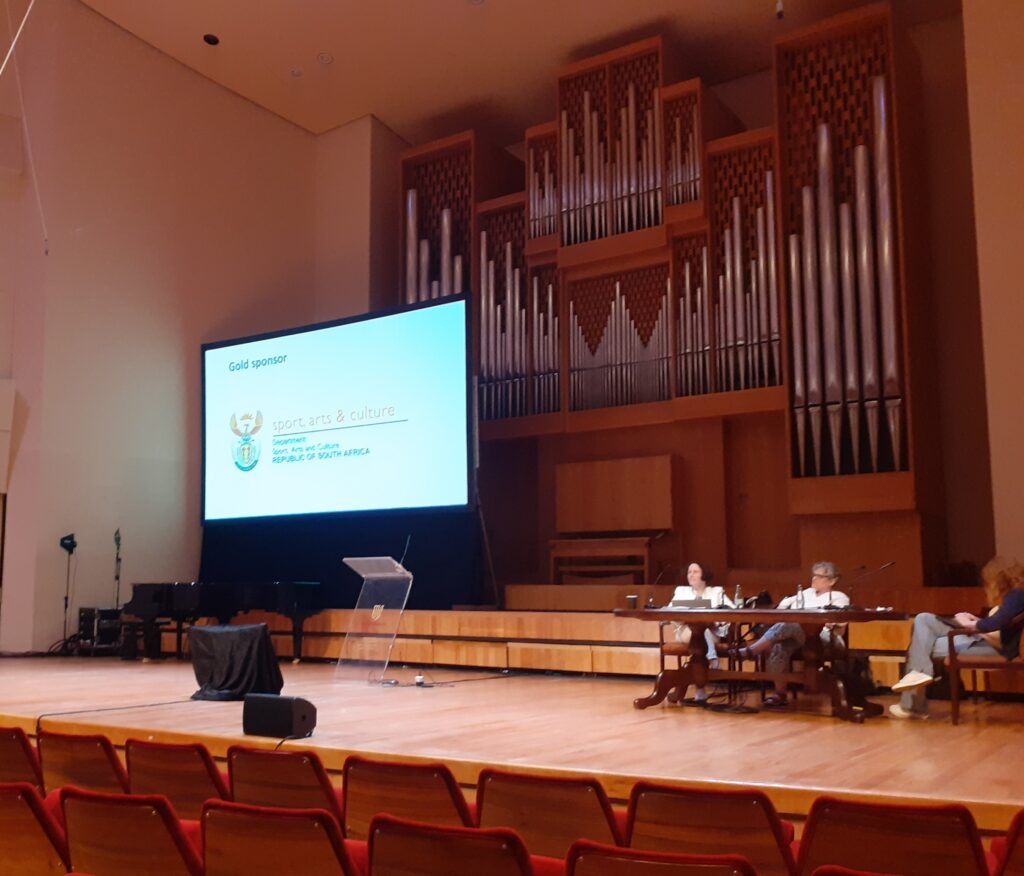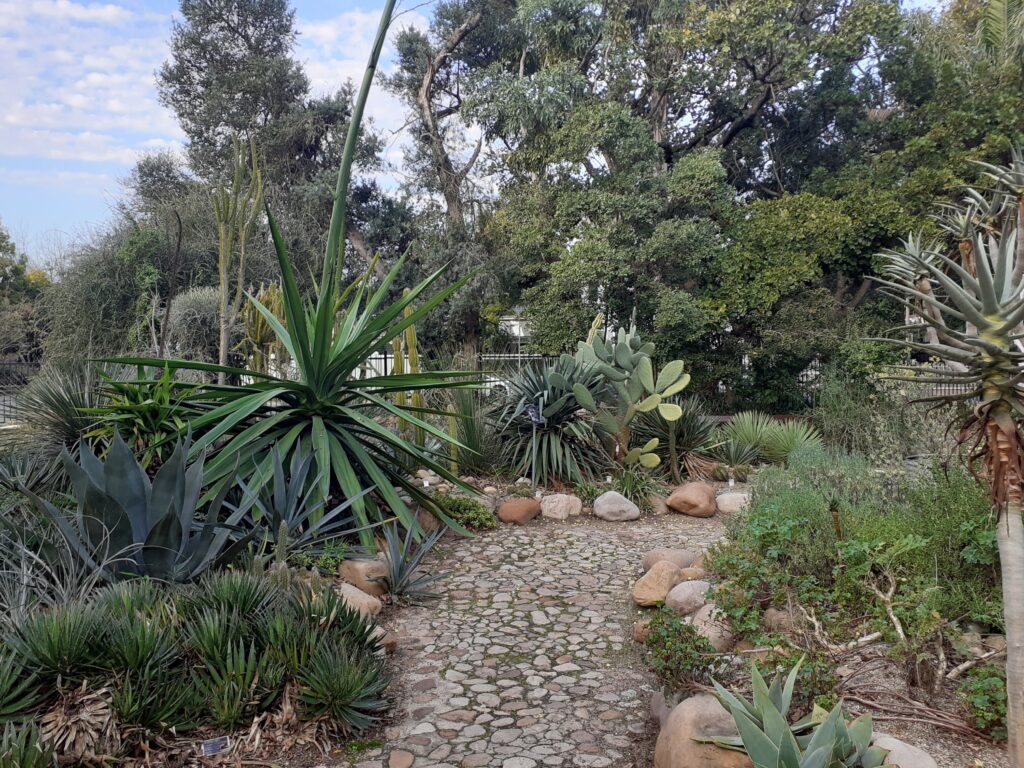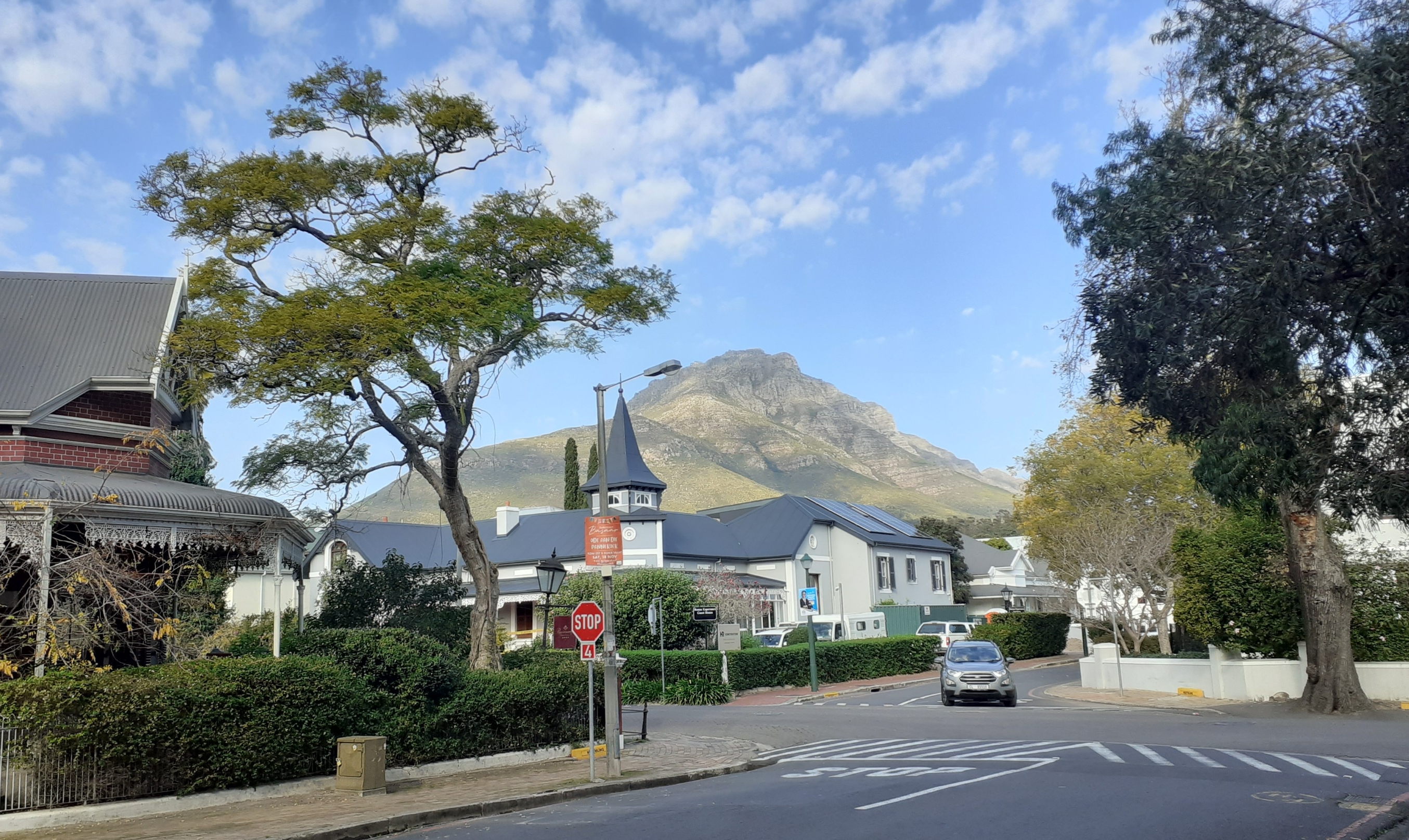IAML (UK & Irl) delegates have continued to share their feedback from IAML Congress 2024 in Stellenbosch. This week, the British Library’s Chris Scobie offers his reflections:
It was a privilege to be able to attend the IAML 2024 Congress in Stellenbosch in June. A huge thank you and congratulations to the organising committee for making it such a special event. Five packed days of papers covered many topics and provided an introduction to lots of different kinds of music, musicians, libraries and archival collections – it was also a massively thought-provoking experience in many ways.

If there was one thread that seemed to run through the week, it was perhaps to do with the practicalities of trying to represent diverse musical traditions in libraries and archives. Different institutions in different countries obviously had their own specific examples of this, with their own challenges (sometimes political and historical as well as practical), but nevertheless there were recurring themes. Limited resource was a familiar one (even if the extent of the limitations varied a lot in different contexts) and Lee Watkins of ILAM (International Library of African Music) was one of several speakers to highlight ways in which collaborations have been a means of getting things done despite limitations.
Another theme was about reaching and engaging with communities. Sinazo Mtshemla from the University of Fort Hare spoke about this in relation to ‘sonifying’ the archive of political activist Govan Mbeki, for example; while Rachel Cowgill summarised a community-based project she had been involved in about a now defunct live music venue in York.
Sometimes the focus was on considering what we collect and reflecting on what is missing from our collections. In fact, a number of papers touched on questions about what it means to preserve music and make it available in the first place – from commercial and field recordings, to scores and also instruments and dance too. And not to forget digitisation and digital encoding of musical sources too (the Digital Libraries for Musicology conference was also being held in tandem with the IAML Congress).
Other challenges were more stark: the composer and academic, Christian Onyeji, joining remotely from the University of Nigeria, spoke powerfully about the difficulty of making field recordings in situations where personal safety is at risk; there was also a sobering talk on the potential impact of new state laws on efforts to promote diverse repertoires in university libraries in Tennessee.
All this was balanced by inspiring examples of how challenges had been overcome thanks to the work being undertaken by colleagues. From the UK & Ireland Branch, Katharine Hogg spoke about ways in which the Barbican Music Library and the Gerald Coke Handel Collection at the Foundling Museum have reached different audiences. There were also examples from South Africa and Mozambique of how younger generations of musicians have been encouraged to interact with archival collections, with the result of blending of older traditions with newer forms of music. In a similar vein, Judith Opoku-Boateng (Institute of African Studies, University of Ghana) opened the Congress in a plenary session that included a passionate plea for archives to be not only about preserving things for the future but also about connecting with communities in the present and being actively part of living traditions. (As an aside: a talk on Wednesday morning on the impact of fungal growths in archival collections ended by, kind of, celebrating the aesthetic result of this damage on its own terms! – literally a living archive!)

Alongside all this and updates from other projects, including RILM, RISM and RIPM, were the many, many discussions with colleagues in the coffee breaks, or over breakfast, or with a glass of South African wine in the evening. Special mention most also go to all the magnificent live music through the week: having unexpectedly discovered the wonderful Zolani Mahola (‘The One Who Sings’) when I was in Cape Town prior to the Congress, the delights continued with the phenomenal Zimbabwean jazz guitarist, Louis Mhlanga, and band on Monday night; an organ improvisation to a silent film on Tuesday; and a concert of chamber music by South African composers on Thursday.
And the scenery was very good too…


If you missed Katharine Hogg’s post last week, click here for her thoughts on the events of the week.
